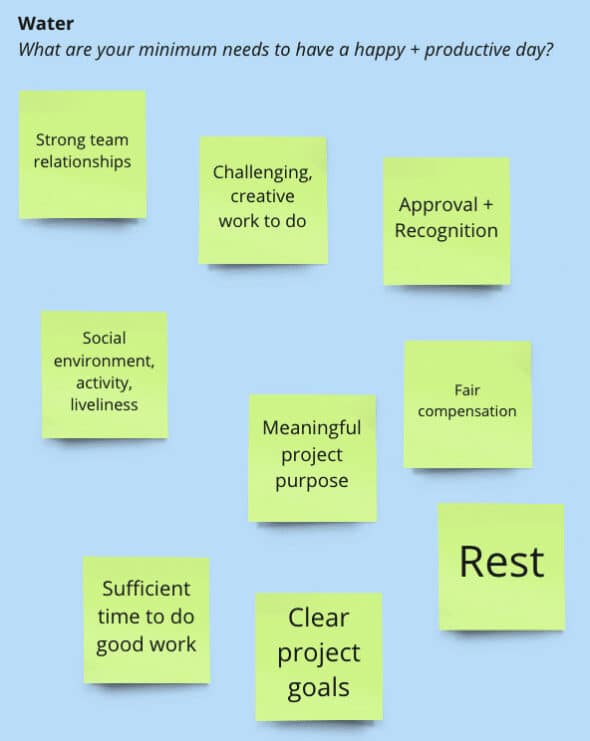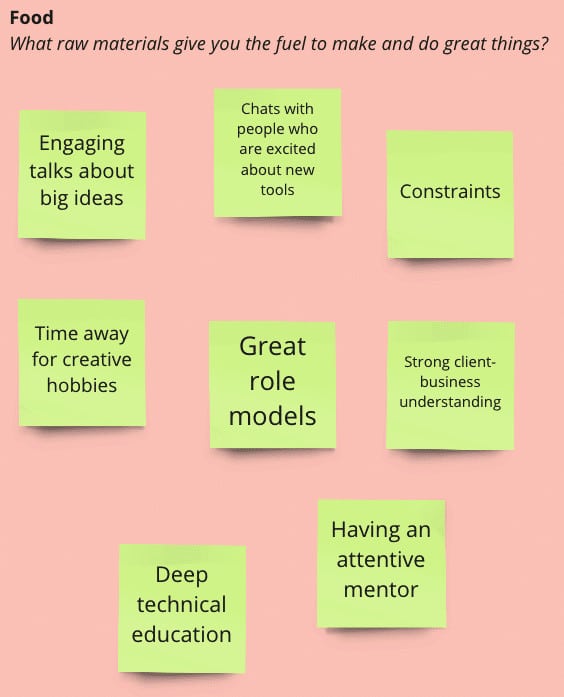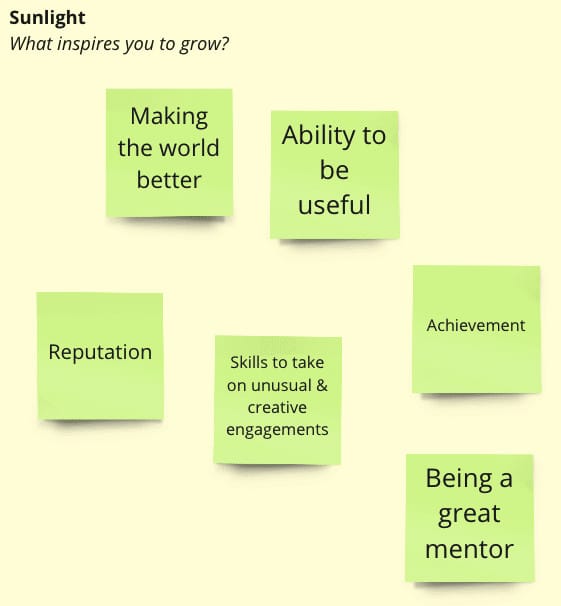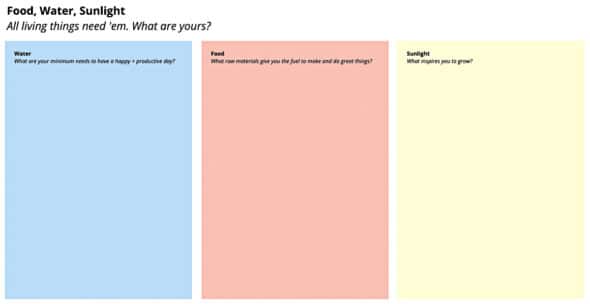Article summary
Last year felt kind of like hibernation. I set down excursions, side projects, and personal goals in favor of going into survival mode. Many of us focused on staying afloat rather than on career development.
I talked with friends and checked in with other Atoms, and there was a strong consensus regarding their hopes for the quarter and the year:
I dunno, man. Survive.
In April, with spring, came hope. We were easing back into things and taking baby steps toward normalcy.
Now, Atomic offices have begun to reopen. Spring is sliding into summer, and I write from my shady backyard on a hot afternoon, feet in the kiddie pool. I’ve had my gentle springtime awakening, and I feel ready to start shaking off the weight of last year. I want to stretch my shoulders, crack my code-slinging knuckles, and feel like myself again.
But where to start? What matters to me, now?
Describing Your Habitat
When I picked up my career development documents from 2019 hoping to “get back to what I was doing,” the concrete plans and lofty goals I’d set in prior years felt foreign to me. I needed a hand just getting back into the swing of things. Much had changed, and I wanted a chance to think about my career holistically.
Toward this effort, I composed an activity to help myself, and the Atoms that I manage as a CDM, describe what we want and need out of our careers. I wanted to come at career development from a place that respected the human needs of the individual. That means we need to take care of ourselves like the creatures we are: by identifying and providing ourselves with a healthy habitat.
The activity I composed involves describing your habitat to help you take care of yourself after a big change or to find direction when you’re feeling off track. This also makes a great activity to start a new relationship with someone you manage and help teammates understand how to support one another.
Start by setting up three columns and some sticky notes:
You can do this activity by yourself, but it’s nice to do it with a manager or mentor. Pick someone who can help you introspect. For each column, we’ll describe the features of our ideal working environment.
Water
Water is our most basic need. We can get on for a while without food, shelter, or companionship, but we won’t last more than a few days without water.

Think of these items as non-negotiables. They needn’t be exciting or even all that special. Hopefully, they’re the things that one can take for granted. But, if these needs are not met, you can expect to see feelings of exhaustion, discontent, or downright burnout.
The water items are important things for managers to hear about. They tend to be the sort of thing over which we have the most control: getting someone the right compensation package, crafting healthy team environments, or customizing schedules or office spaces.
Understanding what’s in our water column can help us tend to ourselves when something isn’t quite right. Meeting these needs gives us a stable base to draw energy from and a baseline to retreat to when it’s needed. With steady access to water, we feel safe and secure.
Food
Food is energy. What inputs do you convert into great outputs? Which raw materials do you need to absorb to do your best creative work? In other words, what gives you energy?

For non-material professions, this section may seem more abstract. To identify your food, consider what resources you’ve referenced lately, what experiences you’ve drawn from, and what kind of work made you feel satisfied at the end of the day.
A lack of food in one’s life might manifest as feeling dull, foggy-headed, or robotic. Maybe you’ve got what you need, and you’re going through the motions, but you just don’t feel like you’re doing your best work. Maybe everything just seems harder than usual.
When we’re well-fed, we feel energized and ready to take on challenges. It becomes easier to draw connections between projects and experiences or even between work and other hobbies altogether. A well-fed professional life feels rich and fulfilling.
Sunlight
Sunlight is growth. It’s feeling inspired, having a sense of purpose, and reaching new heights. The absence of sunlight was the professional loss that I felt most acutely last year. Why am I doing this? Why do I keep doing this?

At this time in the global experience, identifying your sunlight might be difficult. Look to the reasons you started doing what you do: wanting to make a difference, feeling a sense of mastery, or maybe feeling appreciation from your teammates.
Without sunlight, we can still do great work, but there won’t be any reason why. One may feel accomplished and well-respected but with a sense of aimlessness or dissatisfaction. A common symptom I’ve noticed among otherwise well-fed and watered people is a pattern of reading career books and attending training but not having a vision for how to use the skills gained.
Use the topics you find in your sunlight column to inform the content of professional development work you pursue. Or, you can use it as a lens to help you draw insights from past experiences. Framing situations and opportunities in the context of what matters most to you will help you see creative ways to approach problems and use your skills more effectively.
Thriving In Your Career Development
If you’ve found a sunny place to grow, the professional horizon feels ever-distant. There are no dead ends, and with abundant food and water, you’ll have the resources you need to grow and thrive wherever you are.


